Responding to Myself About My Travel Experiences, Three Years Later
A retrospective on the best year of my life
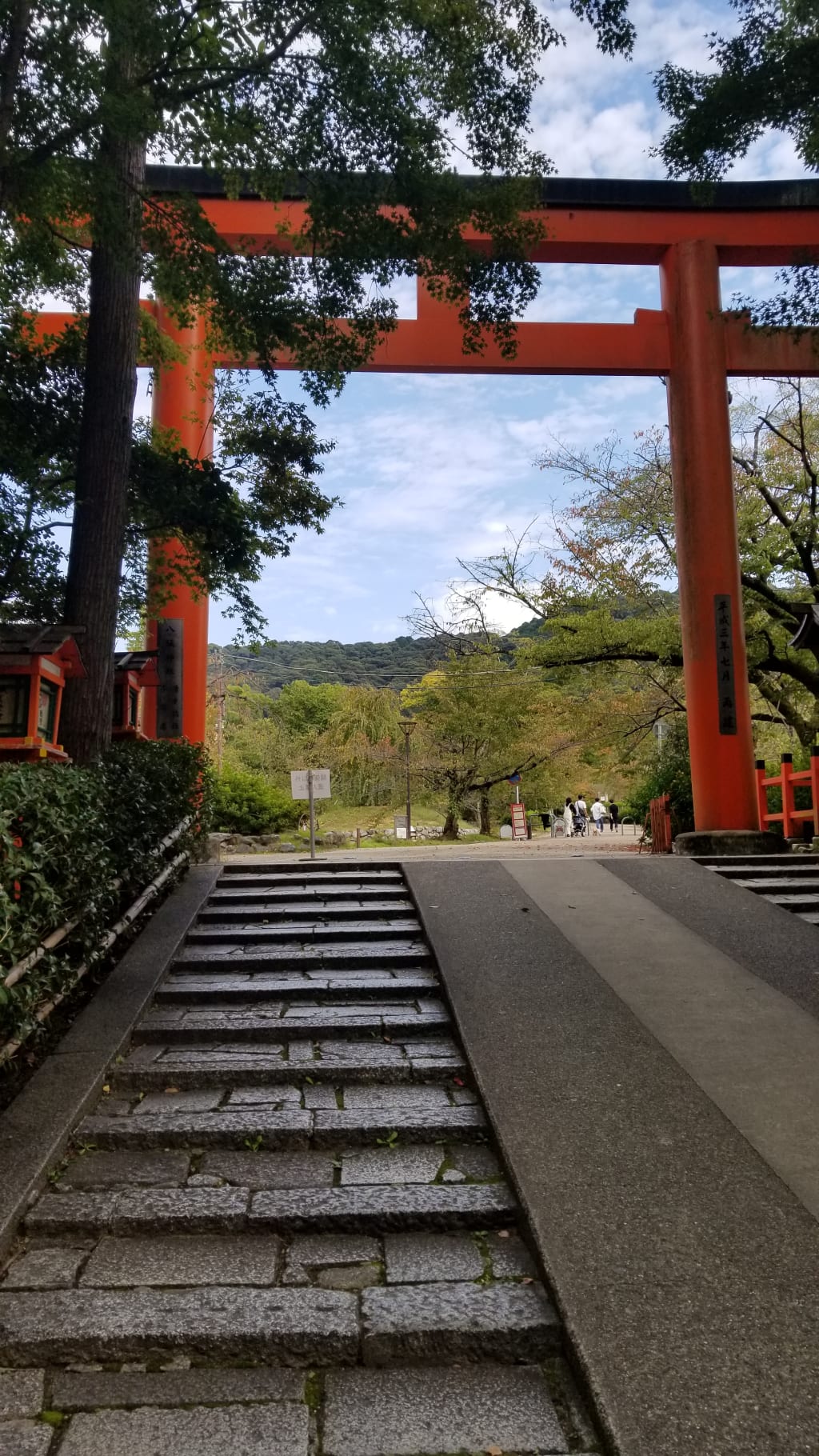
Three years ago, I received news that I had been accepted for a teaching position in Japan. In my excitement, there was also a lot of worry. I wrote this piece about what I was excited for, and what I was dreading.
Now, three years later, I have returned from my overseas experience. And on the whole it was...
GREAT! 10/10. Japan is a beautiful country with a rich culture. I think if anyone gets the chance to visit, even just for a few days--they should jump on it. I regret absolutely nothing. In fact, I was probably at my happiest and most peaceful. Sure, there were still good days and bad days--that's just life. But overall, it's a time I look back on with fondness and nostalgia.
So I thought it would be fun to look back on what my previous self--who had not been to Japan before, let alone had residency there--expected about Japan and whether or not I was correct.
-----
Things I Was NOT Looking Forward To, and How It Actually Turned Out
1. Being forced to eat ramen
This was a silly thing to fear, and I admitted as much in my original article. I have a weird thing about noodles of all types. I hate the texture, I hate how they look. There are other foods within budget, of course. But I was worried about eating school lunches which more often than not, included noodles of some kind. I wanted to avoid any awkward encounters that might arise from not eating the noodles. Especially since, in Japan, you finish everything you are served, even if you don't like it--it's rude otherwise.
Turns out, this wasn't an issue at all! When asked if I would be eating school lunches, I admitted "I'm a very picky eater, so I will bring my own lunch." And guess what? The world didn't end. Nobody screamed at me or shunned me. In fact, they seemed glad that I didn't ask them to make special exceptions for me. Instead, I would stop at the convenience store on the way to work every day to grab some cheap gyoza and/or rice that I could heat up in the staff room microwave. Those foods were just as reasonably priced, and tasted great!
2. Becoming competent at the language
Yes, when I first arrived in my new home, it was very frustrating trying to make sense of kanji. I had learned some, but not enough to where I felt confident. However, the neat thing about being thrust into a different culture, is that you start to adapt out of necessity.
Am I fluent in Japanese? No, not even close. However, I did pick up on a lot more than I probably would have otherwise. Enough to where I could get through most casual every day interactions with no issues at all. I didn't even realize how much I was truly picking up on it until I was introduced to a new class one day, and the students--not knowing any English yet--asked me in Japanese what my favorite things were: And I understood all of them and was able to answer correctly!
Another interesting thing is that I could also recognize what certain kanjis meant (such as "entrance" and "exit")--but I didn't know how to phonetically pronounce them. That was never an issue though, as long as I knew what the symbols meant.
Do you need to be fluent in Japanese to live in Japan? No, I don't think so. Is it good to at least have some of the basics down? Yes, it is. But will you die if you're not fluent? No, you'll get by and adapt and learn more!
3. The headache of settling into a new place
Yes, this was one of the less fun things. But that's just moving anywhere in general. In Japan, foreign residents need to have a Japanese citizen act as their proxy to help them secure a home, bank account, and other fun bureaucratic things. I was lucky that I was there working for a Japanese company, because they sent one of their representatives to help me get all of these things and translate when needed.
It still wasn't my favorite part of the journey, but that's just to be expected when moving somewhere--anywhere--new. I recently experienced the same stress again after getting married and moving to a new state with my now husband. It's just life.
4. Leaving behind my pets
I definitely missed my cats and my rabbit while I was gone. I did get my fix at cat cafes, which was nice. If I had a particularly stressful week, I would go there on Friday evenings after work to decompress and just spend time with some cute, purring kitties. I did, however, miss the quirks and eccentricities of my own pets. That's something that's really hard, I won't deny it.

It was great to come back home, and see that they remembered me! My rabbit immediately came up to me while I was lying on the floor and started giving me kisses. That made it worth it.
5. Having to bite my tongue and accept unfairness in the workplace
Fortunately, I worked with some very kind people, so this wasn't always an issue. Though one thing I did notice was that the female staff members were always the ones doing the cleaning up after lunch--while the male teachers were still seated at their desks working on school stuff, or sometimes even just watching videos.
Japan is still a little bit behind in the women's rights department. What I mean by that is, they're still very into conforming to gender norms. This is something I witnessed at school. The women didn't seem too bothered by it, so good for them. But there were times when I wanted to tell my male colleagues to help out. Of course, I didn't. But the temptation was still there.
Apart from that cultural dynamic, I didn't experience too much "unfairness" in the work place. Though I also acknowledge that I was privileged. Because I am not Japanese, there also wasn't as much pressure placed on me to overachieve, as there might be on a Japanese citizen. I've heard some horror stories about foreigners being treated unfairly in their workplaces--even from people within my company--I was fortunate to not have had that. Though some people's mileage may vary.
6. Conformity
Where I was placed in Japan, was in Ibaraki prefecture--a place that doesn't see many foreigners. Because of that, I--a pale, green eyed, somewhat chubby woman--stuck out anywhere I went in my new city. This came with its own set of pros and cons.
On the one hand, the people in Ibaraki were a lot more interested in me. They don't see foreigners as much as Tokyoites and Kansai folk do. So almost everything I taught them about home was received with a lot of interest. On the other hand though, there is still quite a bit of xenophobia. Particularly among the older generations. Don't worry, nobody will spit on you or hurl racial epithets at you. But you will get stared at by an old person with disdain at least once--even if you aren't doing anything wrong. I experienced a small child approaching me carefully with curiosity--because I looked different than her. (Though this one was more cute and forgivable than being stared at by old people.)
I also had my students mimic my accent and laugh at my Japanese (even when it was used and pronounced correctly.) Being different than the others in Japan, is definitely something that can make one feel "othered" and self-conscious. Especially if it isn't something you're used to.
My advice on how to handle it: It will only bother you if you let it. It did bother me at first. After a few months, I accepted that it wasn't personal--it was just different to them. When I reframed it that way, it was a lot less bothersome. (They did eventually let up on their joking.)
7. Stigma around mental health
Though I loved Japan, there were times when it could feel very lonely. The language barrier made making friends difficult. This can often be the case when being by yourself in any foreign country. But I found out, there's an epidemic of Japanese natives also feeling lonely. And not much can be done about it except to pop a few antidepressants and get back to work.
I will say that receiving and refilling my prescription when needed was fairly unbothersome. But if I needed some emotional support and someone to talk to about my mental status, it was better to chat with friends and family back home. While the Japanese are polite, they are also often taken aback by the Westerners' openness to talking about such deeply personal matters.
8. Driving in Japan
The first few times were scary. But once I got the hang of the cars and driving on the opposite side of the road, it was easy. Though if you're from a flat place in the US, be warned: The roads can be very narrow, and some hills are extremely steep. To get to my apartment, I had to shift gears up a very narrow road with a hill that went up at an almost ninety-degree angle.
However, I liked driving a Japanese car. They're very aerodynamic and feel a lot lighter than American cars. Despite seeming so compact, they're a lot more roomy on the inside than they look on the outside. Japanese cars do so well globally because they are definitely built to withstand just about anything.
My only piece of advice if you plan to drive: It can be dangerous, especially in the countryside. Not because of hazardous road conditions, but because everything is so interesting to look at--that it can be easy to take your eyes off the road!
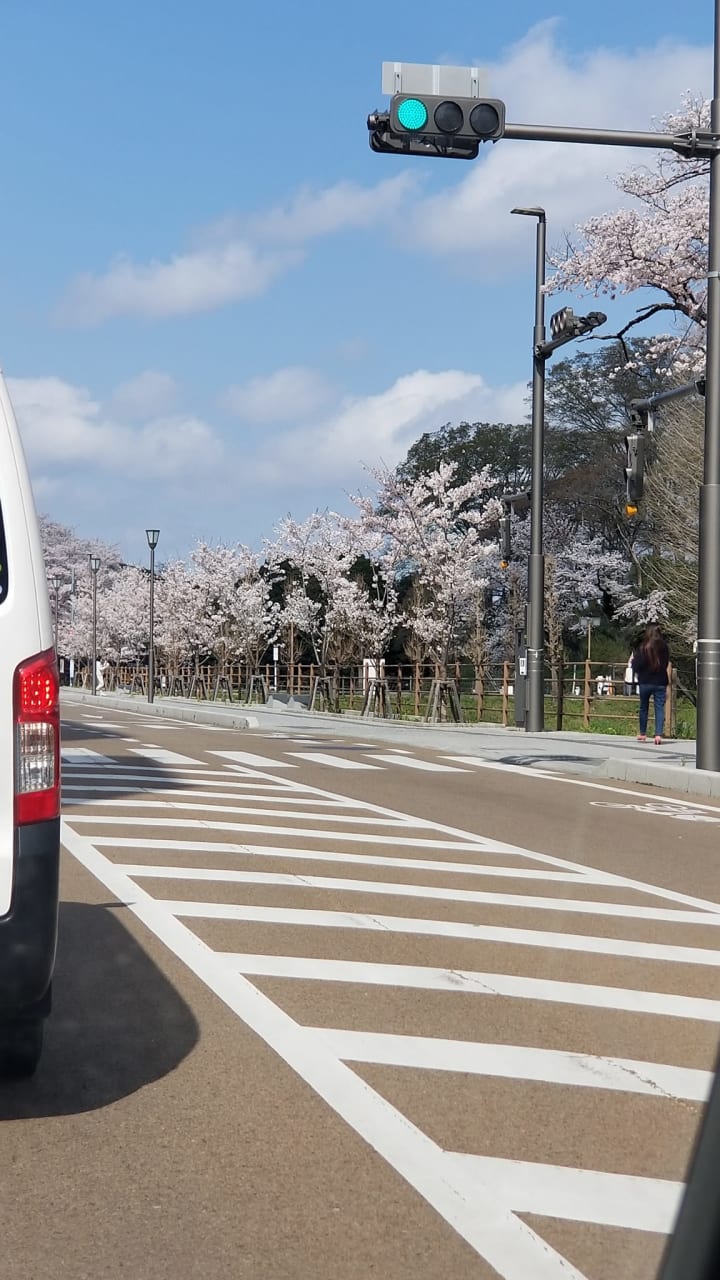
9. Stricter laws
This is one of those things that will be no problem if you do your research and respect the culture. For example: While most of the west is pretty loosey-goosey with marijuana; Japan is not. There is no distinction between "hard" drugs and "soft" drugs in Japan--it's all just drugs. So if you come from a place where pot roams free, be prepared: There is no pot allowed in Japan. And if you manage to smuggle some over--They will find out and you will be deported.
In my previous article, I mentioned the slap on the wrist you'll get if you cross a street when the sign indicates not to. Even though I didn't do this, I saw plenty of Japanese people do it--especially in Tokyo. No one ever said anything about it. I still wouldn't press your luck. When in doubt, it's always best to listen to what you've been told regarding another country's rules.
10. Culture shock
I'm not sure if it's because I did far more research on Japan prior to going, or if the country just suits my personality better--But the culture shock came and went very quickly. One thing that seems true from foreigners who have lived in Japan, is that it's a very hit or miss country. Some people adore it and never want to leave. Some people end up hating it. I've found the ones who end up hating it, are usually not very well-traveled to begin with, didn't do research, and/or expect the country to bend to their own ideas of what's acceptable. If you do all of that, yes, you're going to have a bad time.
But if you go with an open mind, and a desire to truly experience the country and its culture as the natives do--then you'll enjoy it.
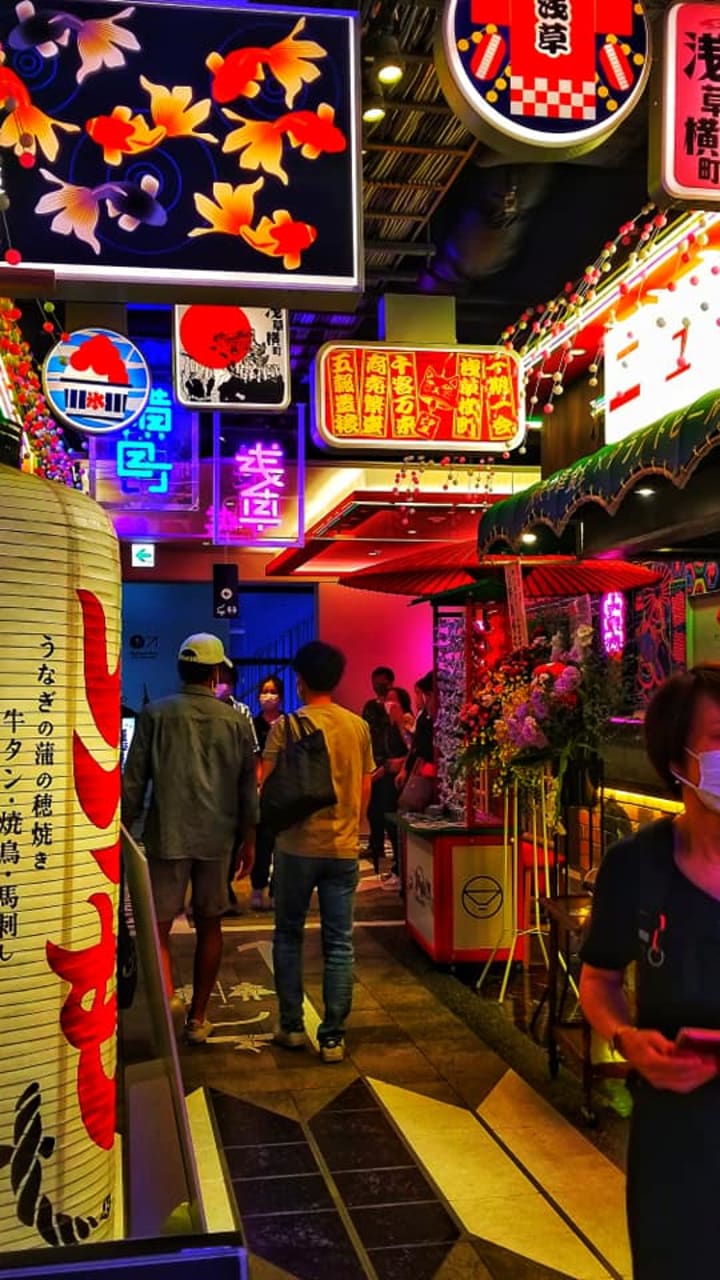
Things I was looking forward to and how it actually was:
1. The culture of respect and politeness
I can attest to this 100%. As soon as I got off the airplane, I already noticed how much more patient and unaggressive everyone seemed. When I was still relatively new to the country and couldn't make sense of a parking meter, a man just jogging by offered to help me without me even asking. I dropped a one yen coin at Kyoto Station (not even the equivalent of 1 cent in USD) and a young man followed me down apologetically, handing me the coin. I got light-headed at work once after not eating a very good breakfast. All the women in the staff room began shoving cake, cookies, and milk at me and told me to rest in the staff room until I felt better.
Helping and looking after each other is a big thing in Japanese culture. They definitely subscribe to the notion that if you do good for others, then others will do good for you. There's definitely drawbacks of collectivist culture, but the willingness to do good deeds is not one of them. And coming from a fiercely individualist culture like the US, it was definitely a breath of fresh air for me.
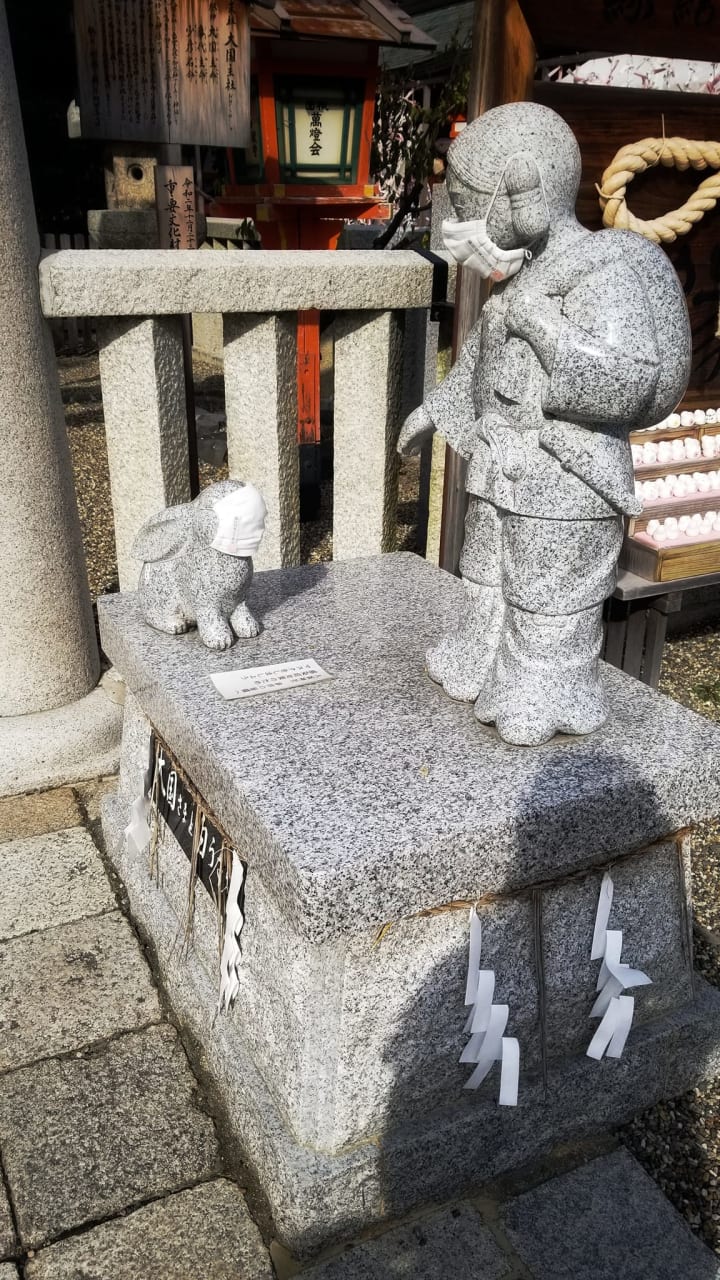
2. Visiting Harajuku and Akihabara
These were the places I was most looking forward to visiting. And I did visit them...But they were nowhere close to being my favorite places that I visited! I went during an interesting time, when Japan was still forbidding tourists from coming into the country--but foreign residents on a work visa could still travel. So I got to experience both of these places while they were not packed to the brim with tourists! Akihabara was interesting; I got some great anime merch there, and had fun playing at their game centers. Harajuku was cute and had lots of fun shops.
However, there is so much more to see in Japan than just touristy Tokyo districts. My personal favorites were Yokohama, Nikko, and Osaka. I'm so glad I branched out and visited different cities instead of just sticking with Tokyo. Everyone's opinion of Tokyo is different. For me: Not bad, just a bit overrated. I definitely preferred Yokohama and Osaka.
So if and when you go to Japan, don't base your opinions of the country on just Tokyo alone. There are so many more cooler places to explore!
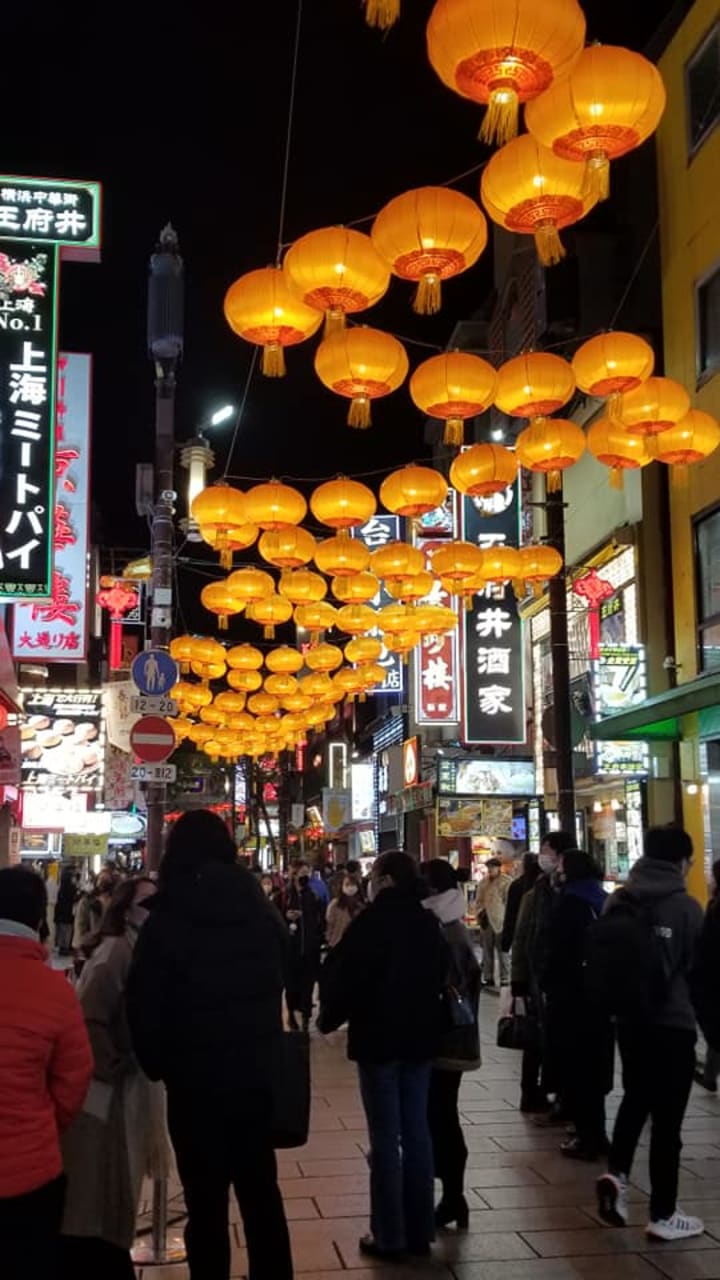
3. Cleanliness
The city streets are definitely cleaner than any city I've been to. Which is strange since it's also very, very difficult to find public garbage bins. Public toilets are rarely leaky or disgusting. You can take nature walks without tripping over anybody's garbage.
However, in the residential area where I lived...it was less clean. Neighbors would often litter their garbage by their apartment doors. Wild animals would rip into the garbage collection bin and strew litter across the street. To be fair, it wasn't the worst case of littering I've seen by a longshot. However, do keep in mind that any place that has people--is also going to have signs of people. Unfortunately, that sometimes means litter. Yes, even in Japan.
4. Beautiful scenery
Everywhere in Japan is beautiful. I never drove or rode past a place that looked flat or boring. I lived on the pacific coast, I got a nice view of the ocean every time I stepped outside. On quiet nights, I could hear the waves crashing. There were rolling hills, beautiful flora and fauna, and wonderful infrastructure.
Train rides are relaxing as they're quiet, and give you time to take in the view. Every country in the world has some breathtaking views of their own. But Japan is absolutely unmatched with its natural beauty. (At least from my experience so far...)
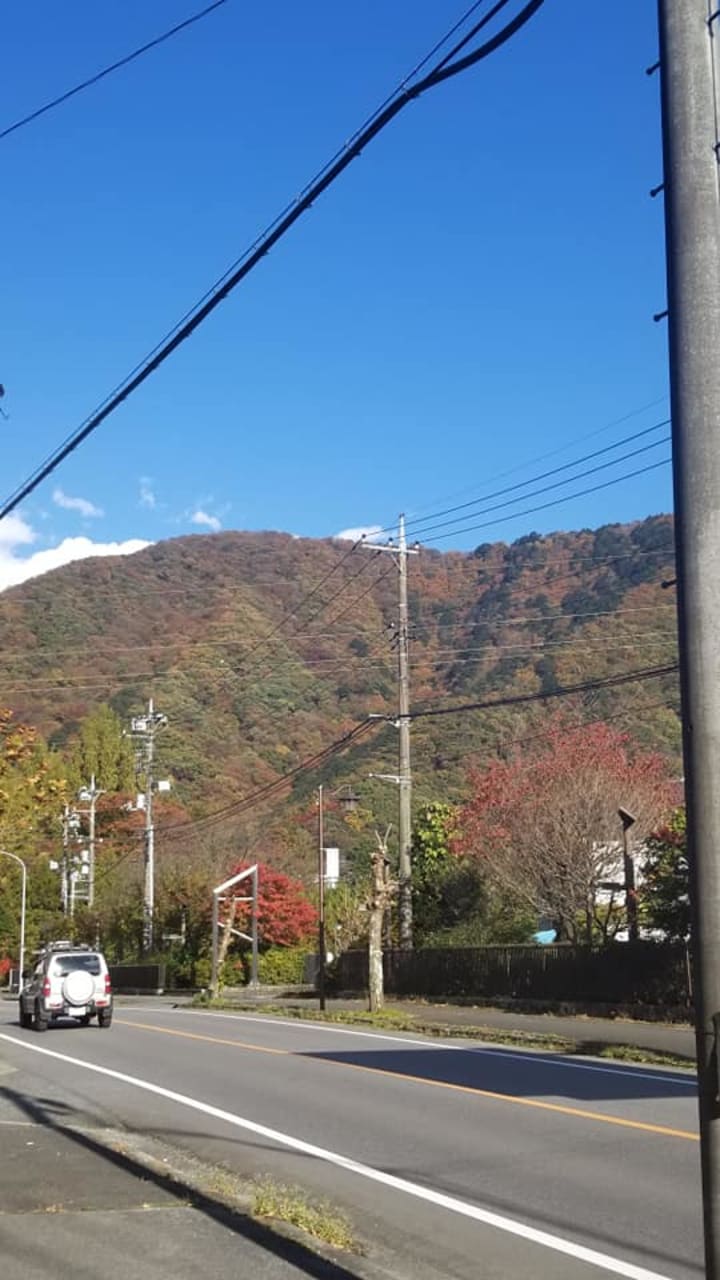
5. The food
There were some foods I tried that were definitely not for me. But for each of those, there was plenty of food that I enjoyed and have yearned deeply for since returning home.
Especially yakiniku (Japanese barbecue) and Sushiro--a Japanese conveyer belt sushi chain. These were both places I would frequent often. The food was so succulent and delicious. I still find myself craving these foods and wanting so badly to recreate them--but I can't manage to do it. (Sushiro's Tamagoyaki--or "fried egg"--sushi is a beautiful, delicious thing that no other sushi place I went to could replicate...I think about it almost every day.)
The rice is also delicious. I know, it's just rice, right? But it's still so good and I can't get my rice to taste like the rice I ate in Japan no matter how hard I may try. This is probably because Japan has its own species of short-grain rice that very rarely gets imported to the US. However, if I can find any in bulk at a Japanese grocery store, you better believe I'm going to get it!
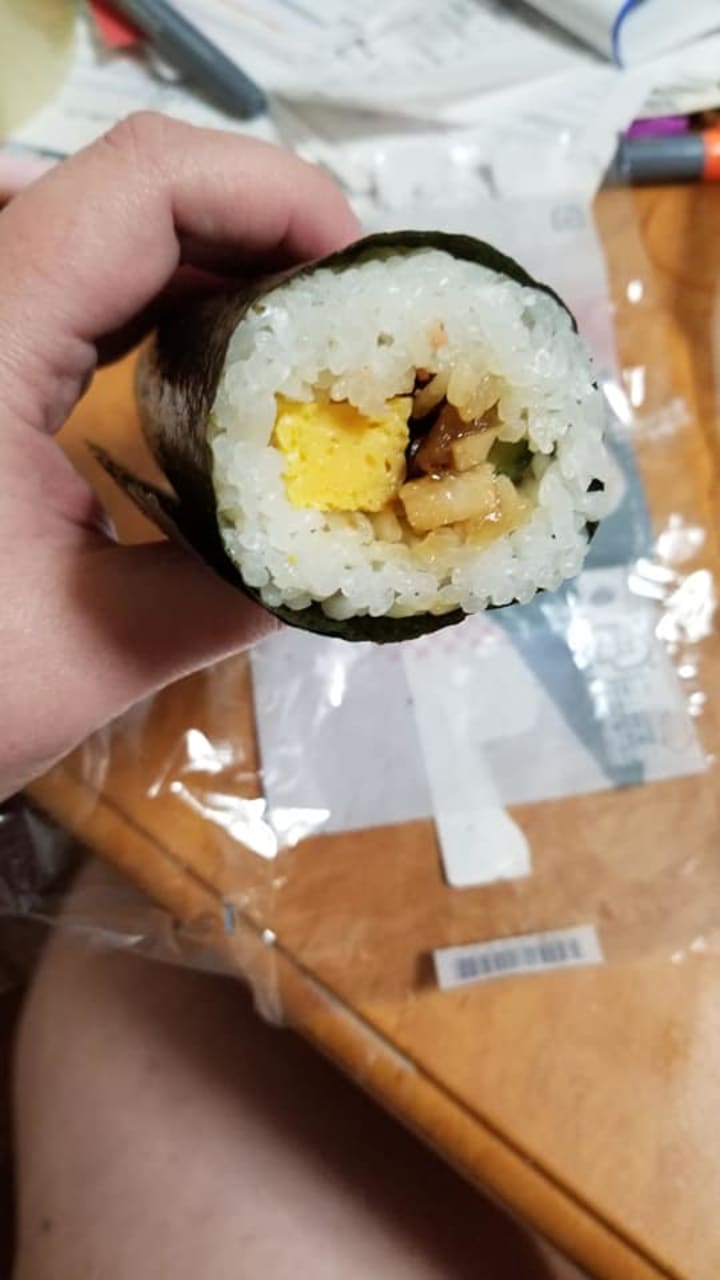
6. Getting to use Japanese in real life situations
If you want to improve your Japanese, this is definitely the best way to do it. You will have awkward, embarrassing slip-ups. (Like when I meant to say "omoshiroi"--funny--but instead said "omorashi"--a fetish for peeing one's self...) As I noted in my article written three years ago: The Japanese are usually much more patient about mistakes made by foreigners when learning their language.
I think majority English speaking countries can get uppity because our language is the one most often used throughout the globe. Japanese people, however, tend to understand that Japanese is only spoken in one country: Japan. They understand if you haven't been exposed to it enough to be fluent.
If you mess up, or aren't super confident, don't worry! In fact, often when I would try to speak only Japanese to a shopkeeper or some other staff, they would do one of two things: Pull up Google translate so we could be positive we were understanding each other, or respond back to me in English. With practice, you will get to the point where people understand you a little better, and vice versa. Learning new languages takes time, and requires practice. Applying it to real world situations with native speakers is the most helpful, I've found.
7. Kawaii overload
Here's what I said about this three years ago:
"Yeah, I know not everything in Japan is "kawaii this" and "kawaii that" and it's maybe a little "cringe" to assume it is."
Well, if you're someone who thinks "kawaii" when you think of Japan...You're not cringe, you are correct. EVERYTHING is cute. There's "kawaii" options for almost every thing you could need. While I was there, I saw everything from: Kawaii chocolates, kawaii backpacks, kawaii toothbrushes, kawaii postage stamps, kawaii pube trimmers (and no, that is not a joke!)
Even bureaucratic places like post offices and city halls, were decorated so nicely and were cute to look at. If you wore something "kawaii" nearly everyone would comment positively on it--even the old men I worked with.
So yeah, Japan is kawaii overload. Going back to the US felt so uninspired in comparison.
On a similar note: No, you are not "cringe" for liking anime. In fact, when meeting new people, the first thing they would usually ask me is what my favorite anime was. Yes, it's true that not all Japanese people are "otaku"--but even still, they are aware that anime is one of their main cultural exports. The Japanese love to share their culture with others, so if anime gets foreigners interested in their culture, then they welcome it.
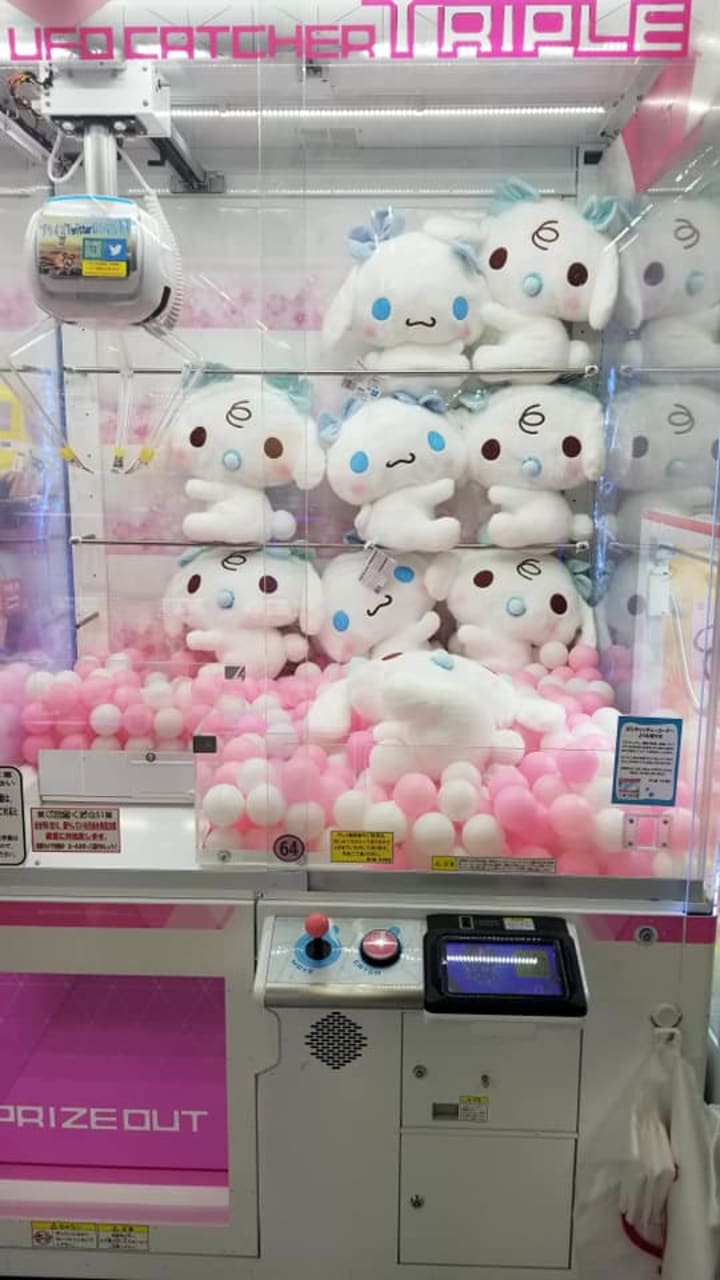
8. Convenience and accessibility
Japan is so accessible that it's scary. It feels like your mind is being read. "Hmm...I'm a little hungry." Bam, a 24-hour convenience store on almost every block! "I could use a drink," vending machine in the middle of nowhere! "I need to get to the nearest station," less than ten minute walk away! "Oh, this place I need to go is on the other side of a highway," Let me introduce to you: Walkable cities!
I will say this, however: The country is not very handicap friendly. The ADA is one of the things that America does right. Japan does not have that. So you will sometimes see old people on canes walking up a million steps...just to cross a street. (That's right, some streets have no crosswalks, and because of the country's lawfulness, jaywalking is strictly prohibited. So instead you have to climb two flights of stairs just to cross.) Oh, and some train stations don't have elevators or escalators...So you need to lug your heavy baggage up the stairs. (Free workout, I guess?)
Now there are still train cars and the like that have reserved seating for people with disabilities. As well, as I'm sure other features I simply didn't notice. But if you use a wheelchair or walker, always research a place you want to go to see if it is accessible. Again, the Japanese try to be hospitable to everyone--especially in places of business, so if you ask employees for assistance, they will usually be willing to help out in some way. But they also can't create an elevator or escalator or other accessible equipment out of thin air, so always do your research.
9. Public transportation
Public transportation is hell in a lot of countries. But not in Japan. In fact, there's a general acceptance that the train should be a quiet place to "recombobulate" one's self after a busy day. Even during rush hours--you wouldn't hear a peep from anyone. Just silence. I loved it.
The worst experience I've had with public transport, was a long delay at Ueno Station during winter--when snow was blocking some tracks. But, the station staff was helpful and apologetic about it.
Basically all modes of public transport in Japan--Trains, buses, taxis--are very convenient and not at all the sketchy experience some people may be used to. Some are more expensive than others (city trains and buses are typically cheapest) but you will generally have a good experience with all of them.
10. Being immersed in a culture totally different from my own
In Japan, cultural immersion is easy (once again, if you go with an open mind and willingness to adapt to the culture) because everything is so interesting, and the locals are eager to share their culture with everyone! There's so many different holidays, traditions, festivals--it's always a blast! Even when I was working, I was having fun because it was all new and interesting!
How do you adjust? Like I mentioned before: It helps to open your mind, be willing to do things differently than what you're used to, respect the locals and their rules, and don't act like a "main character" where Japan is your playground and its citizens are just NPCs. If things don't go according to plan (which they sometimes will not) shrug it off, and find a new plan. If you do all of that, you will bounce back from culture shock fairly quickly.
In closing, I wanted to share a small anecdote about adapting to Japan--A country I have a profound love and respect for, even deeper than it was before I went. When you don't see yourself from the outside, it can be hard to know whether or not you are adjusting well. I knew I had "made it", so to speak, when a coworker at the school asked me if I would come back to Japan after going home to the US. I told her I would like to very much. She replied, "You have to, because this is now your other country!"
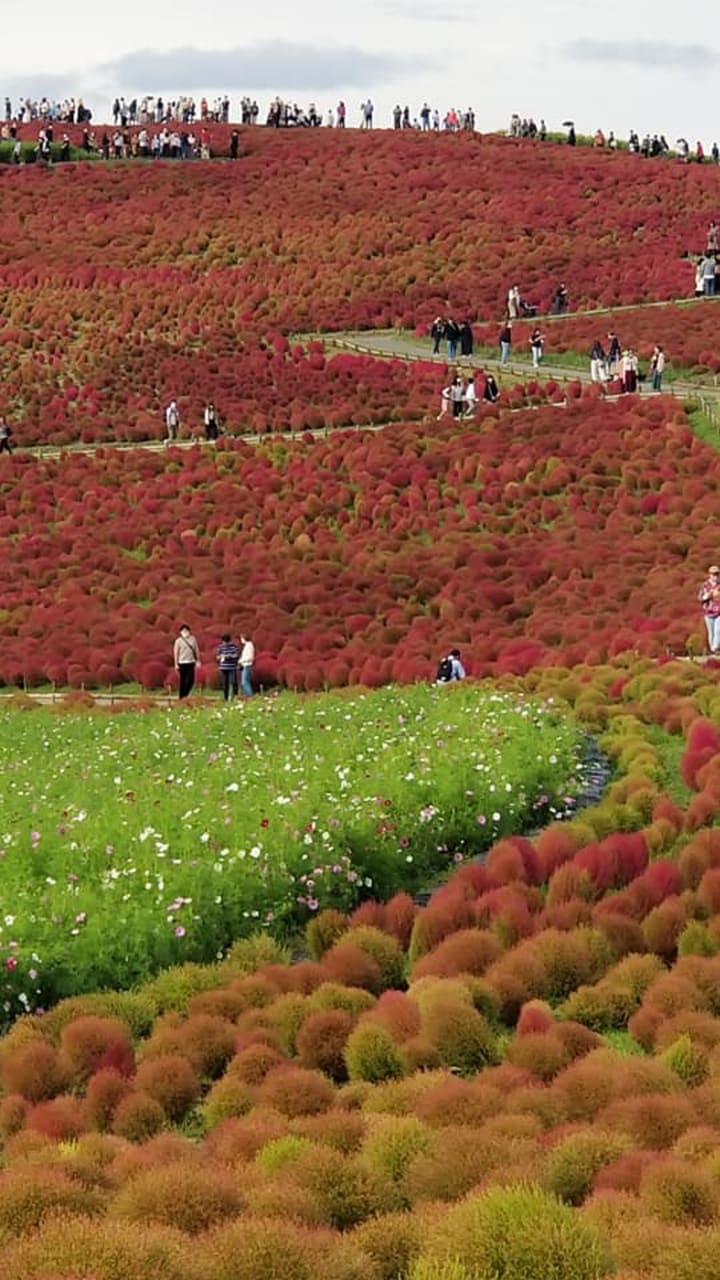
About the Creator
Jennifer Childers
I just write thoughts on anime, games, music, movies, or other things that are on my mind. Occasionally a poem or short story might come up.
Enjoyed the story? Support the Creator.
Subscribe for free to receive all their stories in your feed. You could also pledge your support or give them a one-off tip, letting them know you appreciate their work.


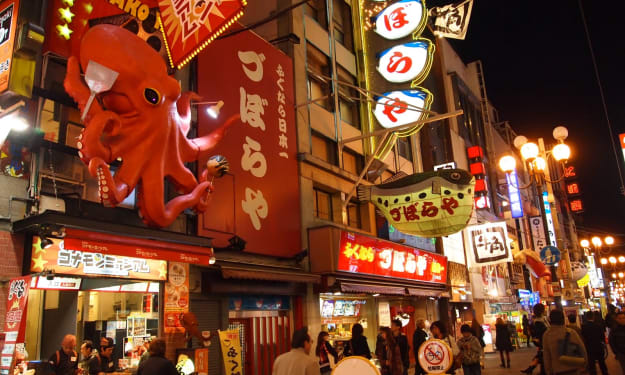



Comments
Jennifer Childers is not accepting comments at the moment
Want to show your support? Send them a one-off tip.